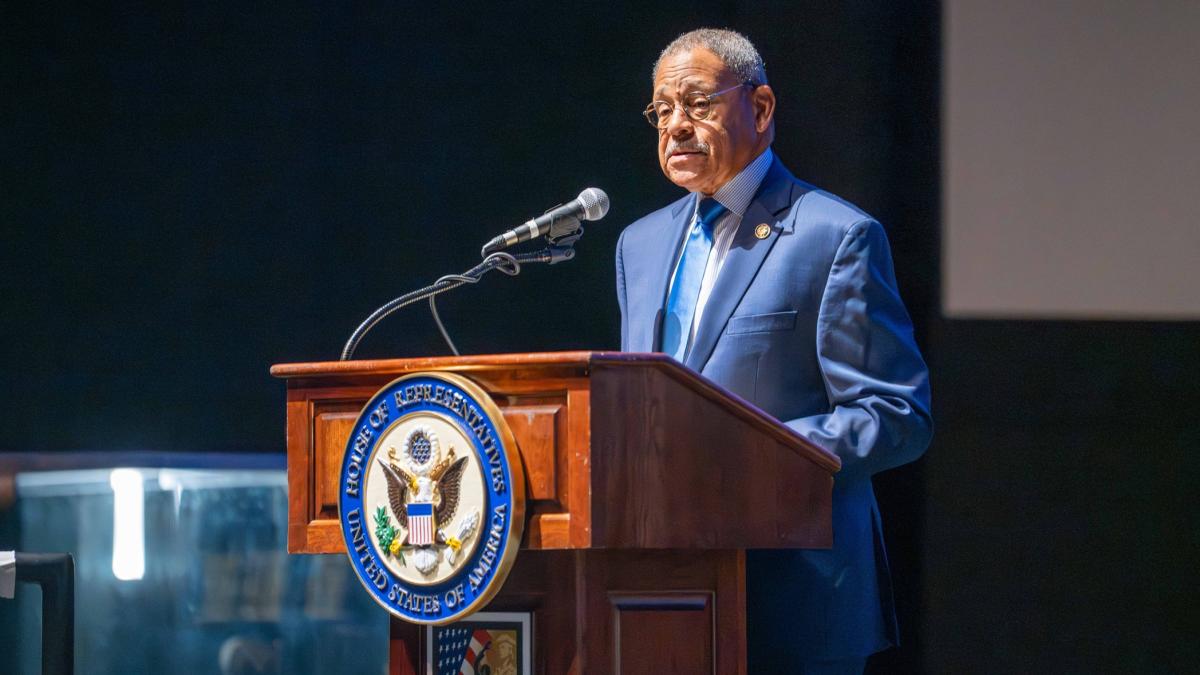BISHOP, KIGGANS INTRODUCE BIPARTISAN STAY ACT TO IMPROVE MILITARY FAMILY STABILITY BY REDUCING MOVES

PHOTO: Congressman Bishop welcomes presenters and audience members to the 2025 Military Family Summit hosted by the Congressional Military Family Caucus at the National Infantry Museum and Soldier Center in Georgia in August.
WASHINGTON – Yesterday, Representatives Jen Kiggans (R-VA) and Sanford D. Bishop, Jr. (D-GA), Co-Chairs of the Congressional Military Families Caucus, introduced H.R. 6146, the Stabilizing Tours to Advance Readiness (STAY) Act, a bipartisan bill to reduce unnecessary Permanent Change of Station (PCS) moves and improve quality of life for military families.
Military families move every 2–3 years, often with little predictability. This creates challenges for retention, spouse employment, children’s education, and community stability. These frequent moves also impose substantial costs on the Department of Defense.
The STAY Act requires the Department of Defense to conduct a comprehensive review of PCS frequency and Navy sea–shore rotations, and to identify opportunities to extend tour lengths where mission readiness would not be affected.
“Our servicemembers put themselves in harm’s way and make huge sacrifices in defense of our country. By instructing the Defense Department to review PCS frequency, not only are we ensuring that we do our best to reduce waste and improve efficiency as well as retention, but also we are creating greater stability for our military families so that they can live, learn, work, and enjoy stronger ties to the communities in which they live,” said Rep. Bishop.
“As a Navy veteran, military spouse, and mom of a servicemember, I know how disruptive constant PCS moves can be,” said Rep. Kiggans. “Frequent relocations strain families, impact children’s education, and make it harder for military spouses to build stable careers. The STAY Act takes a data-driven approach to reduce unnecessary moves, strengthen family stability, and help the services retain the talented people they need to win.”
About the STAY Act
The bill requires the Under Secretary of Defense for Personnel and Readiness to submit a report to Congress evaluating ways to reduce unnecessary moves and rotations. Specifically, the report must:
- Analyze PCS and sea–shore rotation costs and the potential savings of reducing move frequency;
- Assess the impacts of frequent PCS moves on retention, spouse employment, and children’s education;
- Identify billets and duty stations where longer tours would be feasible without harming readiness or career progression;
- Recommend any legislative or policy changes needed to pilot or implement longer tour lengths.
Why It Matters
Frequent PCS moves create well-documented challenges for military families, including:
- Spouse unemployment rates consistently 3–5 times the national average;
- School transitions that disrupt academic achievement and special education continuity;
- Loss of community ties and support networks;
- Significant relocation costs borne by DoD and taxpayers.
Virginia’s Second Congressional District is home to thousands of Navy families and NAS Oceana and Georgia’s Second Congressional District, home to a multitude of Army, Air Force, and Marine Corps families at Ft. Benning, Robins AFB, and Marine Corps Logistics Base in Albany. Reducing unnecessary moves for these communities, as well as the hundreds of others across the country and world that are home to U.S. military installations, would provide greater stability for local schools, employers, and service members.
###